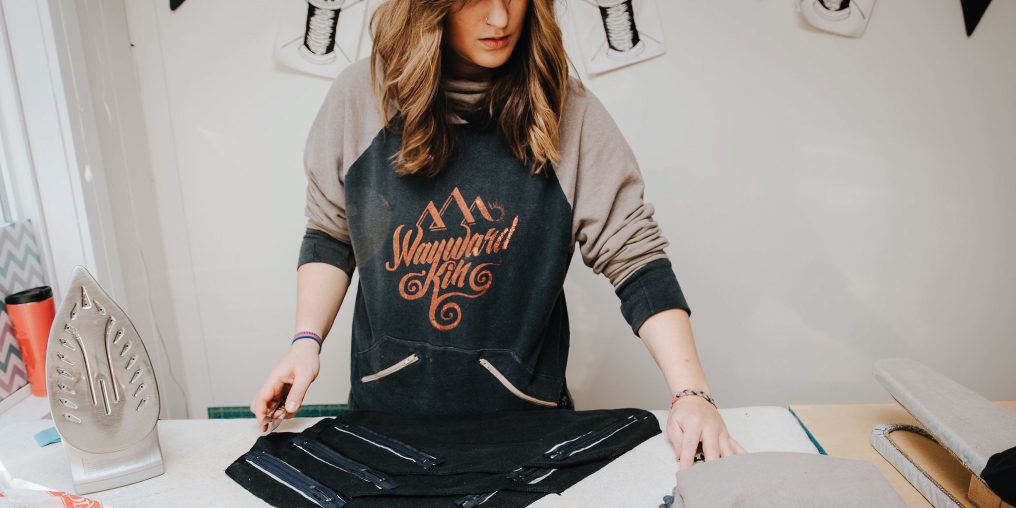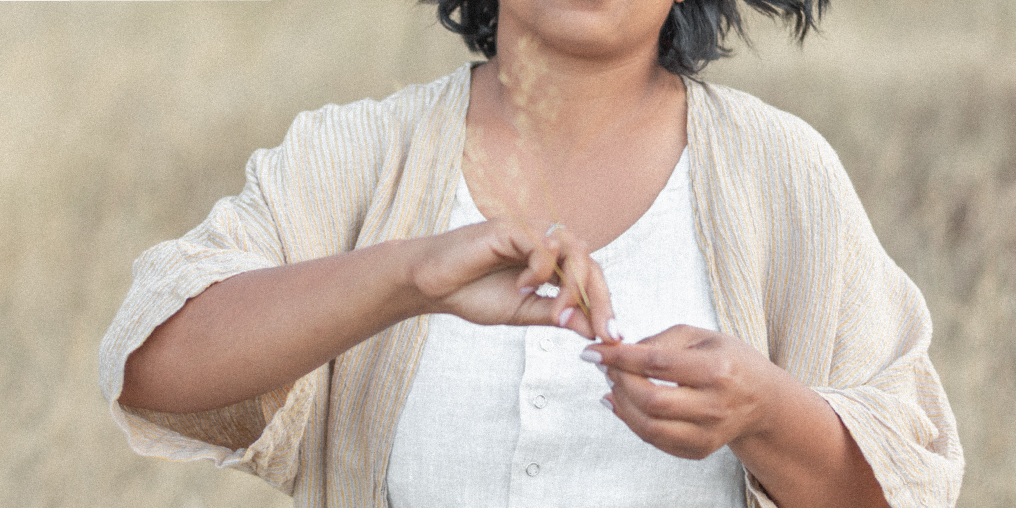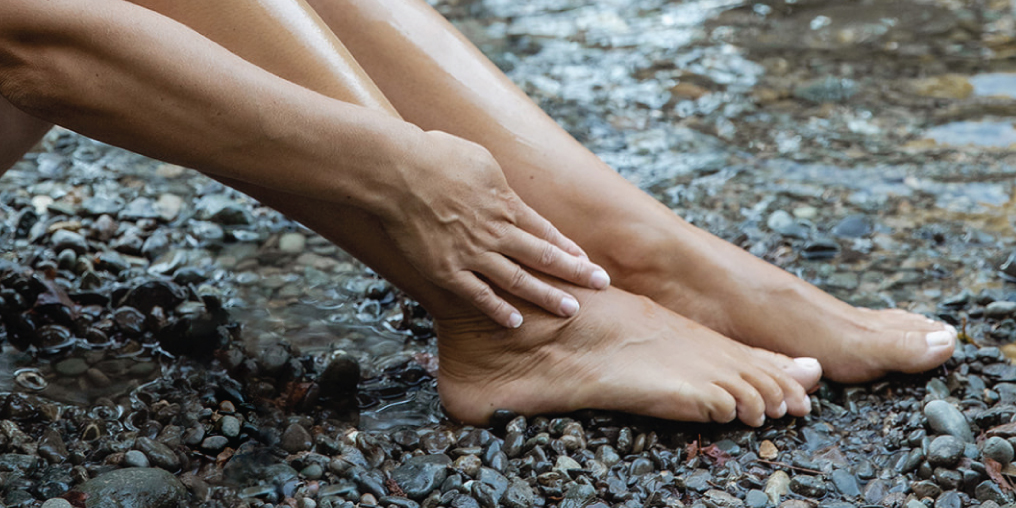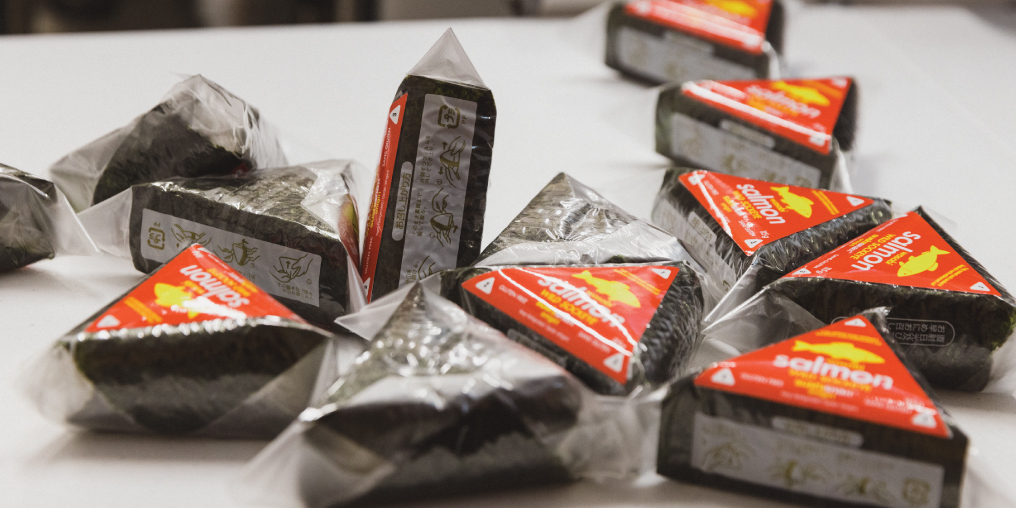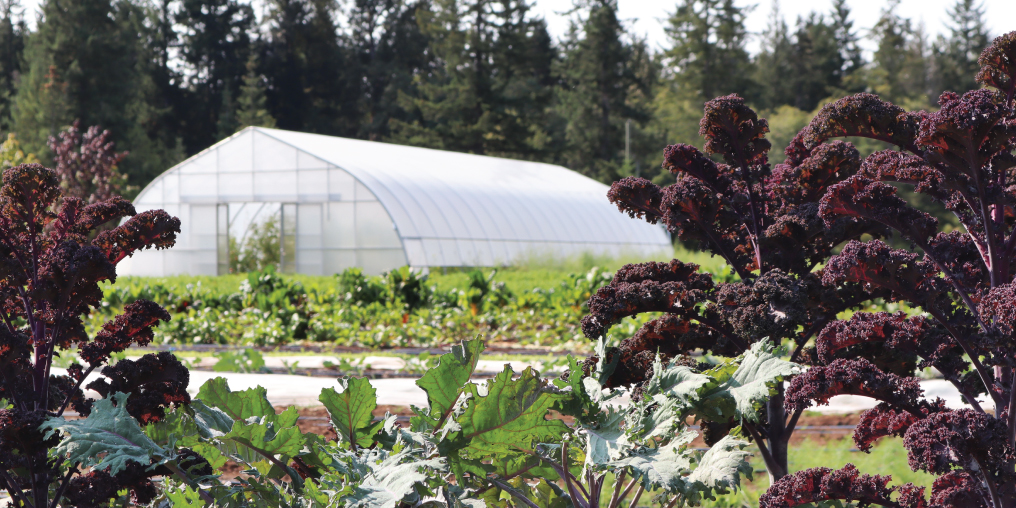JIPSI TREE
It all began when JoAnne McElroy simultaneously left both her teaching and tree-planting careers.
After taking a screen-printing course, she launched Jipsi Tree Style in May 2014, and found herself in the role of clothing designer. She now has a team of Vancouver Island-based seamstresses who help make her artisanal clothing.
Natural fibres in warm colours (think bamboo, organic cotton, merino wool, and linen) and simple, classic styles, adorned with prints of hand-picked foliage, give Jipsi Tree’s clothing its distinctive look.
In 2017, McElroy opened a boutique in downtown Cumberland where Jipsi Tree is exclusively sold. Jipsi Tree continues to evolve as styles change and McElroy dreams up new ideas.
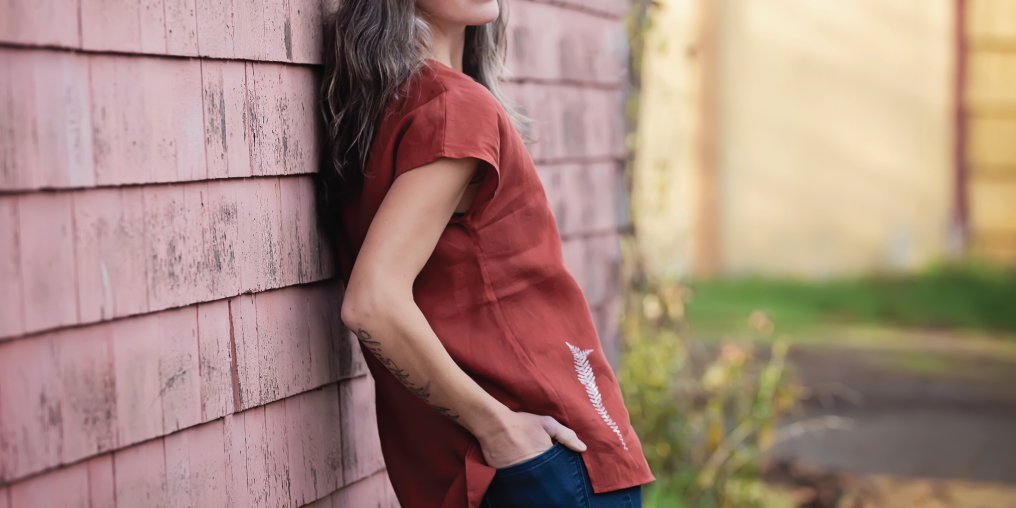
MOSS GREY
Destanne Lundquist says her company, Moss Grey, “basically birthed itself” in 2016, when she decided to sew herself a five-piece capsule wardrobe for a European trip. Her designs caught the eye of Paola Brodsgaard, who requested some pieces for her Cumberland shop, Rusty Rooster, and the business evolved from there.
Made of linen, wool, hemp, or silk, Moss Grey clothing is naturally understated, with a subliminal, subtle, gentle aesthetic that allows the wearer to express their own style.
While most of Lundquist’s clothing is made to order, ready-to-wear and sample items are on display in Moss Grey’s new Tin Town design atelier, where customers can embark on a “choose your own linen adventure.”
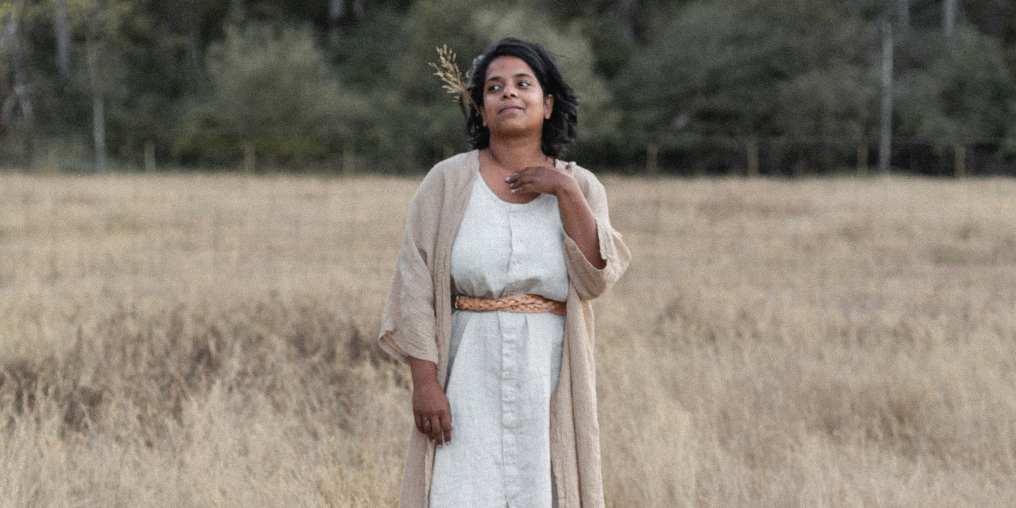
NORTH OF HADRIAN’S
In June 2021, experienced kiltmakers Jackson Wagner and Justin Guthrie opened North of Hadrian’s Kilts and Celtic Clothing in Courtenay (their original Victoria location opened in 2014). Their goal? “To liberate everyone from trouser tyranny.”
Wagner and Guthrie order their fabric directly from the United Kingdom and make the kilts themselves in the shop.
Each kilt is expressly made to measure so it fits perfectly.
North of Hadrian’s specializes in heirloom-quality wool kilts with a huge selection of tartans to choose from—ideal for special occasions. Their everyday, machine-washable kilts are made of sturdy polycotton twill in a range of colours. And because convenience is as important as tradition these days, every kilt comes with pockets.
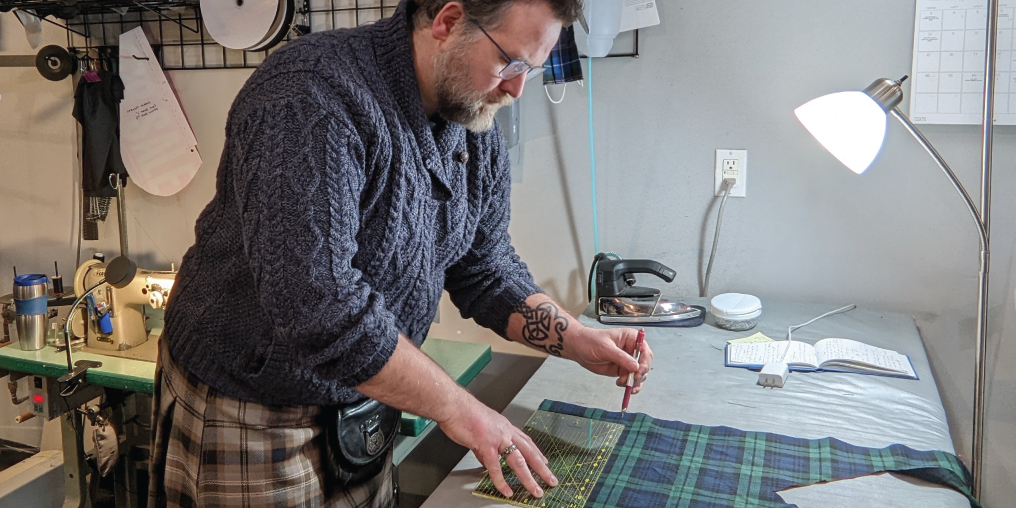
PALOMA JOY
Paloma Joy is on a mission to change people’s mindsets around disposable fashion—and help them look great at the same time.
This Cumberland-based seamstress believes strongly in saving clothes from being tossed out. Instead, she uses pre-loved fabrics to create one-of-a-kind statement pieces. Her designs play with combinations of colours, textures, and prints. This includes reviving people’s sentimental pieces into new wearable garments or keepsakes. To keep things even more sustainable, she uses her scraps in smaller projects or as stuffing for cushions.
When she is not working on her own line of clothing, she offers repairs and alterations—further keeping fabric out of the landfill.
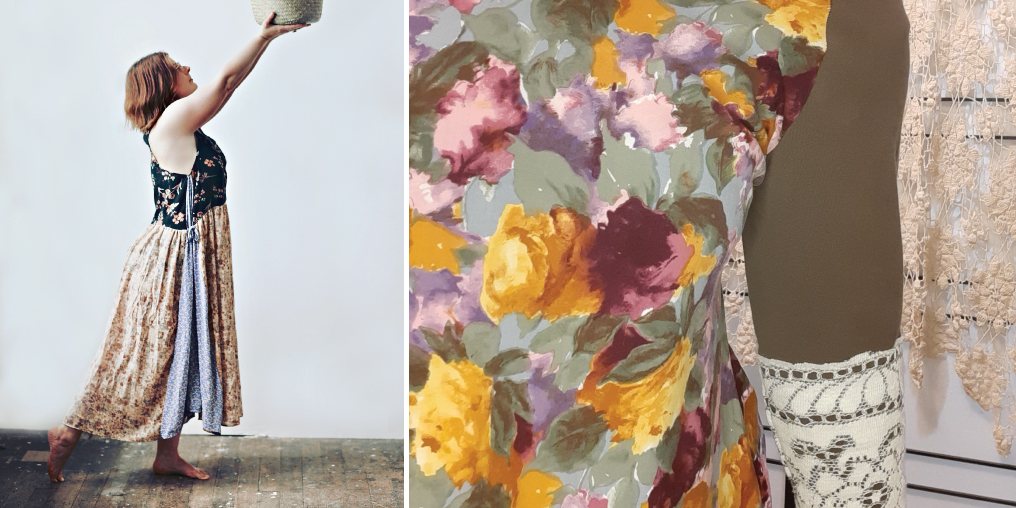
SHELTER
When Alison McLean started Shelter Clothing in 2018, she wanted to make clothes that are gentle, soft, and above all, comfortable.
She also wanted to make clothing that would help women feel confident in the way they take on the world. With inclusive sizing, McLean’s designs look great on all different body types.
Inspired by the principles of beauty, quality, and sustainability, each piece is made from all-natural materials like linen, raw silk, and organic cotton.
In 2022, McLean will be using vibrant fabrics infused with brilliant colours and patterns that go beyond the traditional neutral linen palette. And Shelter’s Courtenay studio will be expanding (they love to welcome local shoppers!).
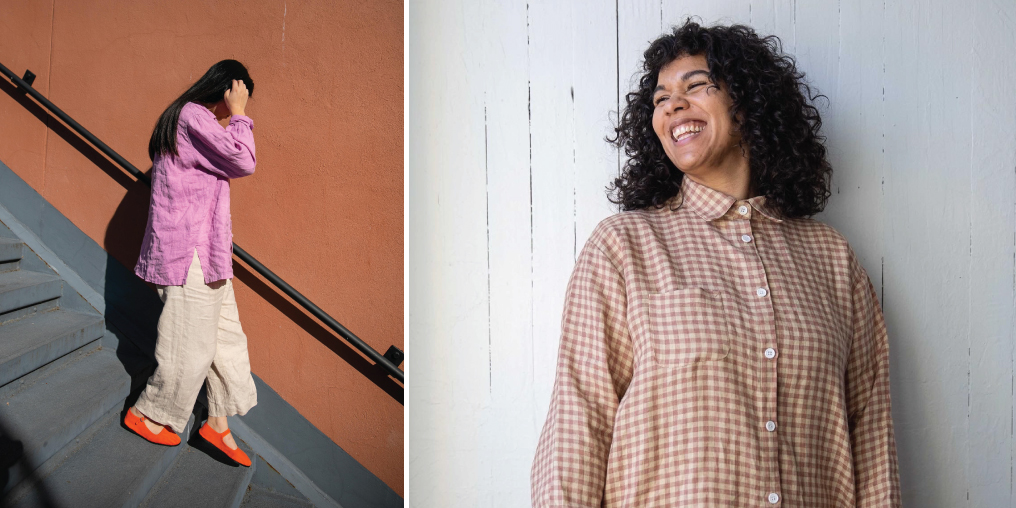
TOTEM DESIGN HOUSE
Totem Design House is owned by Haida-Cree entrepreneur Erin Brillon. Along with her artist/carver brother, Jesse Brillon; her partner, Andy Everson of the K’omoks First Nation; and her daughter, Marlo Wylie Brillon; Brillon designs and produces wearable art for men, women, and children.
Since 2016, Totem Design House has been creating t-shirts, hoodies, and casualwear featuring striking, Indigenous-inspired contemporary designs.
Totem Design’s comfortable, flattering pieces are sewn in Vancouver from eco-friendly materials like bamboo and organic cotton, and screen-printed by hand in their Comox Valley studio using water-based inks.
A portion of every purchase goes to the Copper Legacy Indigenous Empowerment Society, which supports Indigenous programs and projects.
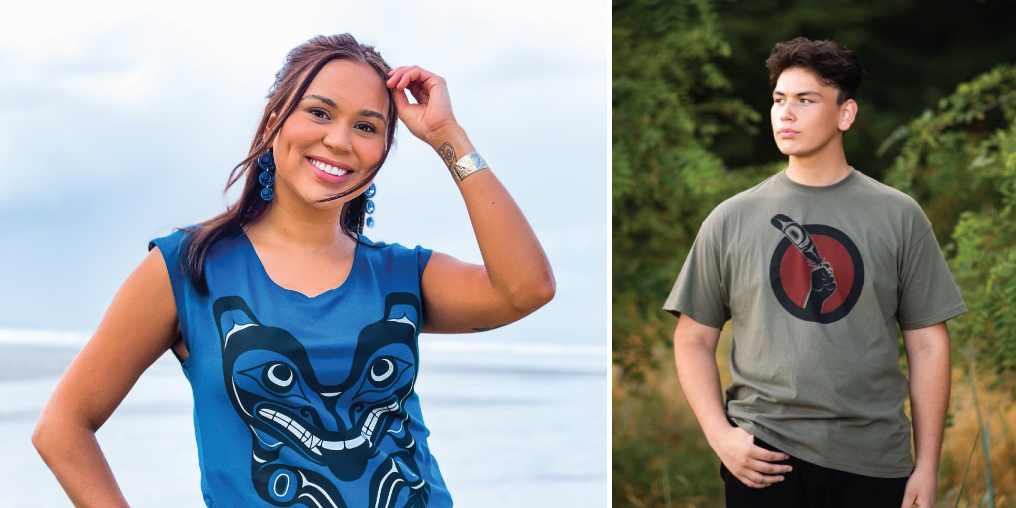
WAYWARD KIN APPAREL
Wayward Kin Apparel celebrates the best of the Island’s nature-focused lifestyle, with pieces designed for minimalists who value items that look great for a very long time.
The company began in 2010, when Annica Danko, a longtime knitter and seamstress based in the Comox Valley, turned her sights to designing and producing comfortable, eco-conscious, and timeless clothing.
Danko approaches her work from a place of creativity and curiosity. Wayward’s current focus is on making t-shirts from sustainable, natural materials, responsibly sourced from countries around the world. She plans to add new garments including hoodies, and new limited-run blank t-shirts, for both consumers and artists who want to add their own designs.
